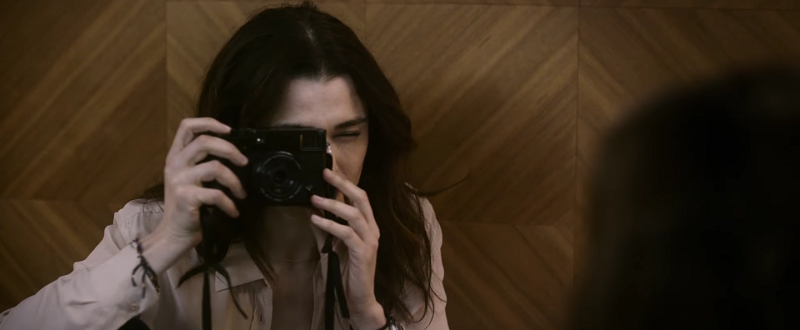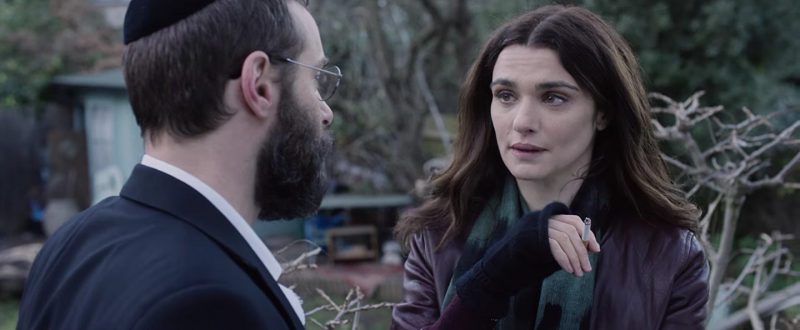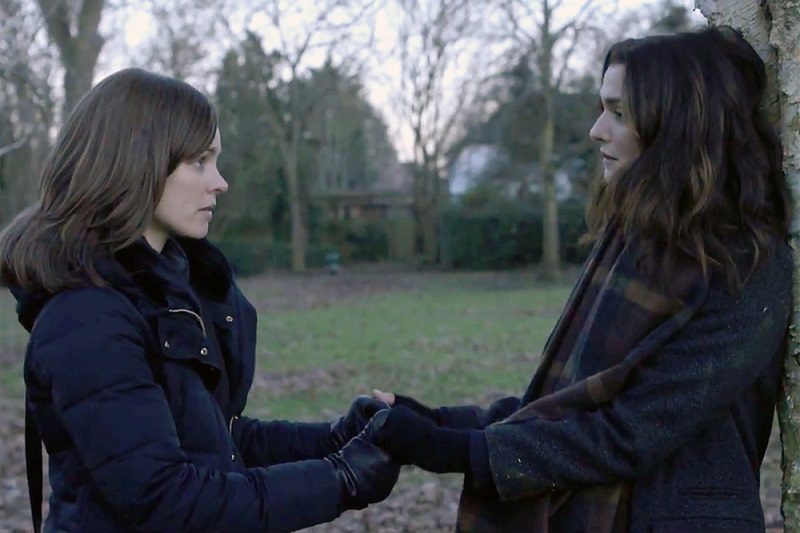Disobedience Review
"A Tale of Two Rachels"
A film with such a title is enough to get you thinking. Not in the way that a film with a title like, Defiance or Doubt might. If you’ve seen any promotional image for this film or know anything about the story, you might begin to think about the idea of disobedience, of nonconformity and what that looks like for those of us who choose that path in whatever parts of our lives that we feel comfortable moving that way in.
Rachel Weisz and Rachel McAdams head this tight wound tale of love, repression, grief, longing and the search for understanding. There is probably a lot more to say there, but those are some of the big things. Ronit (Weisz) is a successful New York-based photographer from London. When she receives a phone message that her estranged, conservative and deeply religious father has passed away, she spirals downward into an abyss of grief, complete with meaningless sex and drinking to numb the pain. But also with a session of ice-skating, which suggests a kind of regression back to an innocent space of childhood where an activity like skating recalls a carefree time in one’s life where the notion of mortality is far from a concern.

Turns out, that Esti (McAdams) and Ronit were each other’s great love from the past. When Ronit up and left for New York, life moved on. Naturally, there are uneasy feelings and other emotions brimming at the surface between them and ultimately what we see is a display of love between them that ends up being complex and beautiful at once.
Weisz holds this film as well as any other she has ever headlined here. She makes us feel the grief she is wrestling with in the wake of her father’s death, the frustration being judged by a community devoted to and in many ways, slave to tradition and yet she holds up a big middle finger to that tradition and governs herself as a free-spirited artist who despises the institution of marriage refuses to fall into the social roles expected of her as a woman.

McAdams, always good, brings arguably has a more nuanced job here. Sporting a super convincing English accent, she portrays a character who on the surface lives a life of contentment - if you go by the rules of the established culture in which she lives, this would be true. She has a job teaching, shaping minds at the all-girl school which she enjoys, she is happily married to a respected member of the community who is kind and caring. What else is there? Although she has been grappling with her sexuality for years and when Ronit returns home, old and unresolved issues return to the surface. McAdams has to portray all of this through subtle body language and facial expression, she has to show us a woman restrained, repressed, stifled in many ways and she does this very well.
Alessandro Nivola deserves some mention here as the third piece of this trio with a long history. He carries the weight of a man who is poised to succeed his mentor as the community and religious leader, managing the truth of his wife’s feelings for Ronit and the potential repercussions that could have on his standing. He too seems to have many layers beneath what we see upfront. Nivola's Dovid is calm, peaceful and kind, but there is also a sense of edge to him, as though he might lash out at any moment, caving underneath the stress. At times it seems we are not meant to fully know what his moves are to be.

The love story itself is handled with great care. You believe the history between the two women and when they seem to fall back into each other and old rhythms, it feels as real as it should. The requirement forbidden love scene is also lyrical and dance-like. While it contains a moment that borders on raunch, it is never too much. There are no gratuitous extended shots of nudity or anything of the sort, it is handled well and feels loving and respectful on the part of the actors, the characters they portray and the filmmakers.
There are genuine moments of moving here. And while much has been made of how different and inconclusive the ending is here as opposed to the book with regard to the what happens with Ronit and Esti, let that not sway you. There is enough in this tightly wound offering from director Sebastian Lelio that will keep you engaged with these characters. There is deliberate dreariness with a glimmer of hope here, but ultimately we are left with a kind of resolution that, as in life isn’t always what we want. Sometimes we have to settle for the resolution were given. And that is okay too. Even if it isn’t, and you still hope to one day be at peace with that.

Pros
- The stellar principal cast, particularly Rachel Weisz and Rachel McAdams.
- Muted color palette compliments the tone and how emotions are muted in the film.
Cons
- Ending is left ambiguous to the future of the parties involved.
- Ronit's 'resolution' with her father's absence feels slotted in a little too late.



